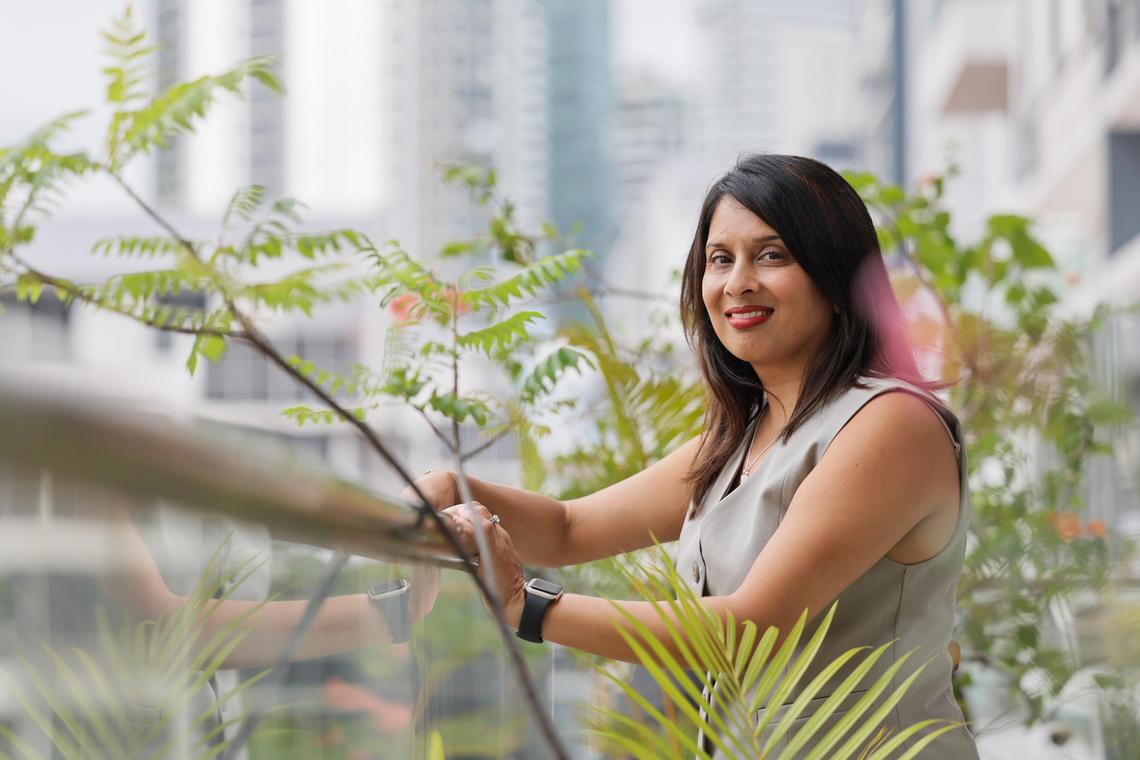SINGAPORE – Former digital marketer Tina Padia discovered her passion for coaching about a decade ago. She felt a pull to find her purpose in life and attended a weekend course at The Coaching Academy in London, where she was then based, that gave her an introduction to what coaching was all about.
“I thought, ‘This is really good.’ But at the time, I was living on my own. I had mortgage payments – it wasn’t the right time for me to start quitting my job and retrain to do something different.”
In 2018, she started in-vitro fertilisation (IVF) treatments after two years of marriage without conceiving. She was also juggling a stressful period at work.
“I was finding it really tough, running to the toilet, taking injections, and then having to present a pitch right after. Your doctor might just call you and say, ‘I need to scan you.’ But you might have a client meeting. So it all became quite a lot,” she says.
At the time, Mrs Padia was seeing a life and executive coach who was helping her deal with the emotional impact of her fertility journey. “I said to her, ‘You know, I’ve always been interested in coaching.’ And she was like, ‘Well, this is a great time. Why don’t you look into it?’”
A neuroscience graduate from the University of Wales in the UK, she sought a coaching qualification rooted in science and enrolled in a course at Singapore-based Mind Transformations, which conducts training in neurolinguistic programming (NLP). NLP studies the ways thoughts affect behaviour.
The NLP Practitioner course she took in 2019, which included over 136 hours of classroom-based training, was life-changing, she says.
“You start by learning and creating awareness about yourself, what triggers you, what beliefs are holding you back, what subconscious and conscious behaviours you want to work on and change, and how you can manage and master your own emotions. The results are transformational, and once you master how to do this, you can help others do the same.”
Following this, she became a certified life coach accredited by the International Association of Coaching Institutes in Germany after completing over 370 hours of practical training.
“It was important for me that I did an accredited coaching programme that is recognised and classroom-based as I wanted to be fully present and immersed in the entire coaching experience, versus a quick online training course,” she says.
Having undergone many IVF treatments over four years, she found that most fertility clinics often overlooked the emotional aspects of these treatments. This spurred her to become a fertility coach and help clients reduce stress and anxiety, and prepare them emotionally, physically and spiritually for motherhood.
She offers a 12-week programme, with one-to-one coaching for $2,600 conducted via video calls. This format has proven particularly appealing since the Covid-19 pandemic as it allows clients to engage privately from home without distractions.
She typically meets her clients once every two weeks, with each session tailored to the client’s current emotional state.
“A lot of times, they say, ‘I’m so anxious, the uncertainties are stopping me from getting up in the morning. I feel so unmotivated.’ ‘I feel heartbroken every time I look at social media.’ ‘I’m constantly bickering with my husband.’ ‘Everything triggers me.’
“And then I ask them, on this journey, how do you want to feel?”
Mrs Padia helps clients unpack layers of emotions and develop ways to manage their feelings using techniques such as meridian tapping, visualisation and self-compassion exercises.
In January 2025, the mother of a three-year-old son launched Singapore’s first fertility-focused podcast to share her expertise in bite-sized segments, further expanding her reach and support.
Mrs Padia is mindful of the distinction between coaching and therapy. She recommends clients suffering from borderline depression and trauma to see a therapist, psychotherapist or a counsellor.
“The key difference between a coach and a therapist is that a therapist focuses on trauma – past and present, and then helps their client deal with that. A coach focuses on the present and future. As a (coach), you have to be very mindful of where your help and support starts, and where it ends.”
- Jessica Novia is a features correspondent at The Straits Times.
Join ST’s WhatsApp Channel and get the latest news and must-reads.

